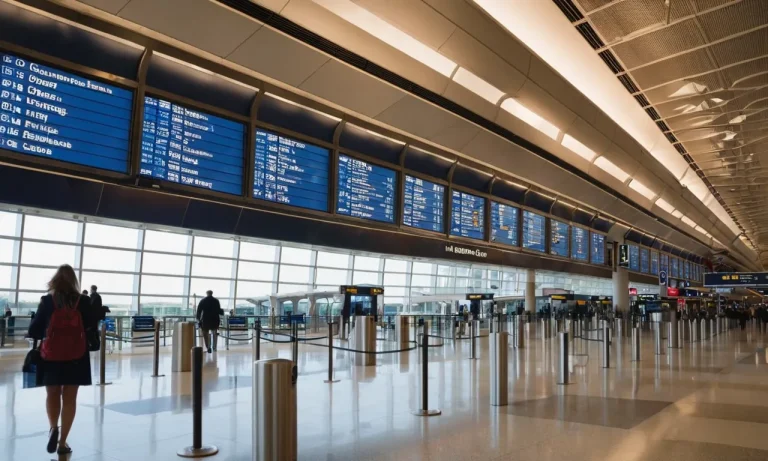Getting your car impounded can be a headache, especially when you have to deal with paying the fees to get it back. If you’ve ever wondered exactly how much impound fees cost, you’ve come to the right place.
If you’re short on time, here’s a quick answer to your question: Impound fees typically range from $150 to over $1,000 depending on the jurisdiction, length of impoundment, and other factors.
In this comprehensive guide, we’ll explore the ins and outs of impound fees so you know exactly what to expect if you ever find yourself in this unfortunate situation.
What Are Impound Fees?
Impound fees, also known as vehicle impoundment fees, are charges imposed by law enforcement agencies or towing companies when a vehicle is towed and stored in an impound lot.
These fees are meant to cover the costs associated with towing, storage, and administrative processes related to the impounded vehicle.
Definition of impound fees
Impound fees typically include the following components:
- Towing fee: This is the charge for transporting the vehicle from its location to the impound lot. The cost may vary depending on the distance traveled and the type of vehicle being towed.
- Storage fee: Once the vehicle is in the impound lot, a daily or weekly storage fee is applied. This fee covers the cost of keeping the vehicle secure and maintaining the impound lot.
- Administrative fee: Some impound lots charge an administrative fee to cover the paperwork and administrative tasks associated with impounding and releasing the vehicle.
Common reasons for impoundment
Vehicles are typically impounded for various reasons, including:
- Illegal parking: If a vehicle is parked in a restricted area, on private property without permission, or in violation of parking regulations, it may be towed and impounded.
- Unpaid fines or tickets: If a vehicle owner fails to pay outstanding fines or parking tickets, the authorities may impound the vehicle as a means of enforcing payment.
- Expired registration or insurance: In some jurisdictions, driving a vehicle with expired registration or without valid insurance can lead to impoundment.
- Driving under the influence: In cases where a driver is arrested for driving under the influence of alcohol or drugs, their vehicle may be impounded as part of the legal process.
Overview of associated costs
The costs associated with impound fees can vary depending on several factors, including the location, duration of impoundment, and the towing company or impound lot involved.
On average, towing fees can go up to $300, while storage fees can be around $100 per day.
Administrative fees, if applicable, may add an extra charge to the total impoundment cost.
It is important to note that these figures are general estimates, and the actual costs may vary significantly. It is advisable to check with local law enforcement agencies or towing companies for specific information regarding impound fees in your area.
For more information on impound fees and regulations, you can visit the official website of your local law enforcement agency or towing company.
Breakdown of Impound Fee Components
When your vehicle gets impounded, you may find yourself wondering about the different components that make up the impound fees.
Understanding these fees can help you better navigate the impound process and avoid any surprises.
Let’s take a detailed look at the various components that contribute to the overall impound fees.
Towing fee
The towing fee is one of the main components of impound fees. When your vehicle is towed, you will be responsible for paying the towing company for their services.
The cost of the towing fee can vary depending on factors such as the distance your vehicle was towed, the type of vehicle, and the location where it was towed from.
Daily storage fee
Once your vehicle is impounded, you will also incur a daily storage fee. This fee covers the cost of storing your vehicle at the impound lot. The daily storage fee can vary depending on the impound lot and the duration of your vehicle’s stay.
Lien processing fee
In some cases, when a vehicle is impounded, there may be a lien processing fee involved. This fee is charged by the impound lot to cover the administrative costs associated with processing the lien on the vehicle.
The lien processing fee can vary depending on the impound lot and the specific circumstances surrounding the impoundment. It’s advisable to contact the impound lot directly for information on the lien processing fee.
Impound release fee
Lastly, there is the impound release fee. This fee is charged when you go to retrieve your vehicle from the impound lot.
The impound release fee covers the administrative costs of releasing your vehicle and providing you with the necessary paperwork.
Factors That Determine Impound Fee Amounts
When it comes to impound fees, there are several factors that determine the amount you will have to pay.
Understanding these factors can help you better prepare for any potential impoundment situation and avoid any surprises when it comes to the fees involved.
Here are the key factors that determine impound fee amounts:
Jurisdiction
The jurisdiction in which your vehicle is impounded plays a significant role in determining the impound fee amount. Different cities, states, and countries may have varying regulations and fee structures in place.
It’s important to familiarize yourself with the specific jurisdiction’s impoundment policies to understand the potential costs involved.
Length of Impoundment
The length of time your vehicle is impounded can also affect the impound fee amount. Generally, the longer your vehicle remains in impound, the higher the fees will be.
This is because impound facilities incur costs for storing and maintaining impounded vehicles, and these costs are passed on to the vehicle owner.
Type of Vehicle
The type of vehicle you own can also impact the impound fee amount. Some jurisdictions may have different fee structures for different types of vehicles, such as cars, motorcycles, or commercial vehicles.
Additionally, larger vehicles may incur higher fees due to the additional space and resources required to store them.
Reason for Impoundment
The reason for the impoundment can also play a role in determining the impound fee amount.
For example, if your vehicle was impounded due to a traffic violation, the fees may be different compared to a vehicle impounded as part of a criminal investigation.
Understanding the specific circumstances surrounding the impoundment can help you anticipate the associated fees.
It’s important to note that impound fees can vary greatly depending on the jurisdiction and specific circumstances.
To get accurate and up-to-date information on impound fees, it is recommended to consult the official website or contact the relevant authorities in your area.
This will ensure that you have the most accurate and relevant information regarding impound fee amounts.

Ways To Minimize Impound Fees
Retrieve your vehicle quickly
One of the most effective ways to minimize impound fees is to retrieve your vehicle as soon as possible. Most impound yards charge a daily storage fee, so the longer your vehicle stays there, the higher the fees will be.
To avoid accumulating unnecessary charges, make arrangements to pick up your vehicle as soon as you are able to.
Qualify for fee waivers or reductions
In certain circumstances, you may be eligible for fee waivers or reductions. For example, if your vehicle was impounded due to a valid emergency or if it was wrongfully towed, you may be able to have the fees waived or reduced.
It is important to gather any supporting documentation, such as proof of emergency or evidence of wrongful towing, to support your case when requesting fee waivers or reductions.
Dispute unfair charges
If you believe that you have been charged unfairly for impound fees, it is crucial to dispute these charges. Start by carefully reviewing the impound yard’s fee breakdown and comparing it to relevant regulations or guidelines.
If you find discrepancies or believe that certain charges are unjustified, gather any evidence or documentation that supports your argument.
Presenting a well-documented case may increase your chances of having the unfair charges waived or reduced.
It is worth noting that impound fees can vary depending on the location and specific impound yard.
To get a clear understanding of the impound fees in your area, it is recommended to contact your local impound yard or visit their official website for more information.
Additionally, seeking legal advice or consulting with professionals who specialize in impound issues can provide you with valuable insights and assistance in minimizing impound fees.
How To Pay Impound Fees
Payment methods
When it comes to paying impound fees, there are typically several payment methods available. The specific options may vary depending on the impound lot or towing company, so it’s important to check with them directly.
However, common payment methods include:
- Cash: Many impound lots accept cash payments. This is a convenient option if you have the exact amount on hand.
- Credit or debit card: Most impound lots now offer the convenience of accepting card payments. This allows you to pay your fees using a credit or debit card.
- Online payment: Some impound lots may have an online payment portal, allowing you to pay your fees securely over the internet. This option can be particularly useful if you’re unable to visit the impound lot in person.
It’s worth noting that not all impound lots may accept all payment methods, so it’s important to inquire about the available options beforehand.
Obtaining proof of payment
After making your impound fee payment, it’s crucial to obtain proof of payment. This serves as evidence that you have settled your fees and can be useful in case any disputes or issues arise in the future.
The impound lot should provide you with a receipt or some form of documentation that clearly states the amount paid, the date of payment, and any other relevant details.
Make sure to keep this proof of payment in a safe place for future reference.
Dealing with unpaid fees
If you’re unable to pay your impound fees in full or on time, it’s important to communicate with the impound lot or towing company as soon as possible. Ignoring the situation may lead to further complications, such as increased fees or the possibility of your vehicle being sold or auctioned off.
Many impound lots are willing to work with individuals who are experiencing financial difficulties, offering payment plans or other arrangements to help resolve the outstanding fees.
If you find yourself in this situation, don’t hesitate to reach out to the impound lot and explain your circumstances. They may be able to offer some flexibility and find a solution that works for both parties.
Remember, it’s always better to address unpaid fees proactively rather than letting the situation escalate.
Conclusion
Getting your car out of the impound lot can be an expensive hassle. While fees can vary widely, understanding the typical costs involved can help you be prepared for the financial impact.
By acting quickly, looking into waivers, and knowing the proper payment procedures, you may be able to reduce some of the burden.
But the best approach is to avoid impoundment entirely with responsible driving and vehicle ownership.






